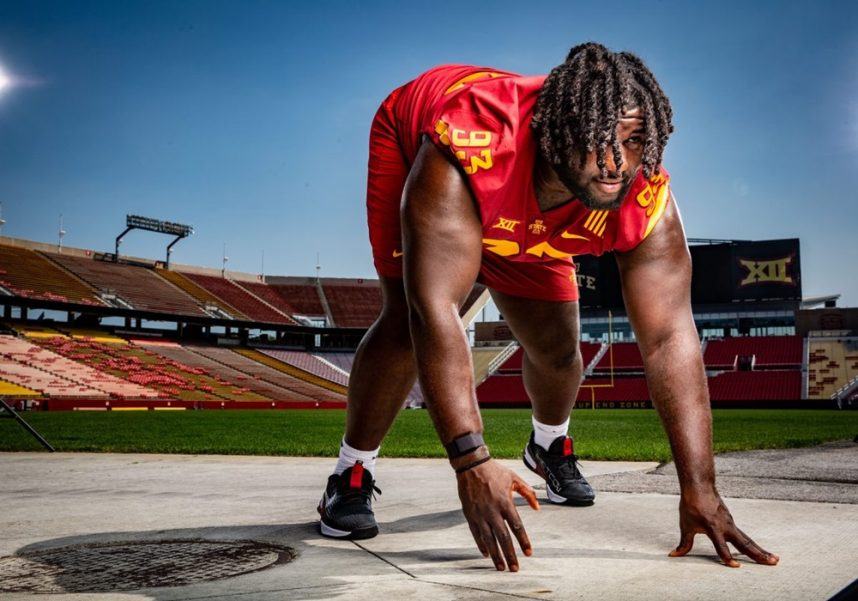Iowa College Athletes in Gambling Scandal Snared by ‘Warrentless Searches’
Posted on: January 23, 2024, 06:48h.
Last updated on: January 24, 2024, 10:22h.
Evidence that led to 41 Iowa college athletes being accused of gambling violations was allegedly obtained by warrantless searches conducted by a special agent with the state’s Division of Criminal Investigation (DCI). That’s according to an attorney representing two athletes in documents filed with the Story County District Court on Monday.

Van Plumb is the attorney for former Iowa State defensive lineman Isaiah Lee, who faces aggravated misdemeanor charges after betting against his team in a 2021 football game. The charges specifically relate to Lee’s alleged efforts to conceal his identity while placing the bets on DraftKings using his mother’s account.
Plumb also represents the Cyclones’ Eyioma Uwazurike, who allegedly used an account registered under his girlfriend’s name to place bets.
AI Geofence
Plumb accuses DCI agent Brian Sanger of employing AI technology to place a GeoFence around a University of Iowa dormitory in an attempt to gather evidence about underage gambling. He did this without a warrant or “any tips, complaints, or evidence that underage gambling was occurring,” according to the filing.
Law enforcement officers must establish “probable cause” to obtain a search warrant. This means there must be a reasonable suspicion that an identified suspect has committed a crime or that a search would turn up evidence.
Failure to establish probable cause could violate an individual’s Fourth Amendment rights, which protect Americans from unreasonable searches or property seizures. Moreover, a court can deem evidence gathered without a warrant inadmissible.
Plumb notes that two of Sanger’s superior officers initially pumped the brakes on the investigation before changing their minds and allowing it to proceed.
‘Can’t Remember’
During Sanger’s deposition last week, the agent admitted he could “not remember why he decided to conduct the warrantless searches, but [said] that he was concerned about things such as people infiltrating Iowa’s sports team to gain insider information or match-fixing,” according to Plumb’s filing.
Sanger’s investigation led to accusations against 26 Iowa and 15 Iowa State athletes. Of the 15 who were charged, nine pleaded guilty to misdemeanor charges of underage gambling. Most others saw their charges dismissed because of a lack of actual criminal activity.
“Special Agent Sanger chose to use software that allowed him to access people’s private information without a warrant, which raises Constitutional issues involving illegal searches and seizures,” Plumb said in an e-mailed statement to WHO-TV.
Related News Articles
Iowa State QB Hunter Dekkers Accused of Betting on Cyclones
More Iowa and Iowa State Football Players Bet On Own Games
NHL’s Evander Kane Placed Up to 50 Bets a Day with Illegal Bookies
Most Popular
Mirage Las Vegas Demolition to Start Next Week, Atrium a Goner
Where All the Mirage Relics Will Go
Most Commented
-
Bally’s Facing Five Months of Daily Demolition for Chicago Casino
— June 18, 2024 — 12 Comments -
Chicago Pension Mess Highlights Need for Bally’s Casino
— July 2, 2024 — 5 Comments
















No comments yet